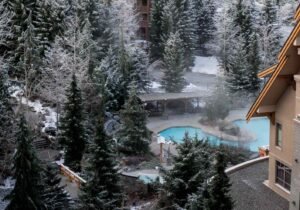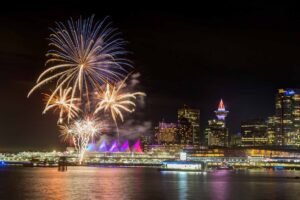Vancouver is currently grappling with an acute shortage of hotels. If you’re seeking accommodations and a great deal, just click here, Hot Link to our widget)
If you want to book a hotel, we have these tips:
- Do book early. Use our gooking link. You will get a deal and a guaranteed room.
- There are last-minute deals, almost always. We have them on our booking link.
- If you have a car, and can’t get the downtown hotel you want, consider staying in the other great hotels in places like Surrey, Richmond and North Vancouver, that are close to public transit.
For those interested in understanding more about why there is a Vancouver hotel shortage, read on.
Vancouver’s Hotel Dilemma
Over recent years, the diminished hotel capacity in Vancouver has consistently caused repercussions throughout the city and drawn concerns from various tourism businesses. These concerns are not without reason.
In the forthcoming three years, Vancouver is scheduled to host an array of prominent events. This includes the Invictus Games, the Grey Cup, the Laver Cup international tennis tournament, the 90th anniversary of the first international Alcoholics Anonymous convention, and part of the massive FIFA World Cup soccer tournament. The accommodation needs, therefore, are set to surge with the influx of leisure tourists, business travelers, and attendees for cultural and athletic events.
However, according to a recent report by Destination Vancouver, the entity responsible for promoting the city to tourists and conventions, there has been a concerning 12.8% reduction in hotel rooms over the last two decades. The numbers dwindled from 15,242 rooms in 2002 to a mere 13,290 in the previous year.
“We’ve been going on a downward trajectory in terms of room stock,” voiced Destination Vancouver CEO Royce Chwin, as quoted by the Vancouver Sun. “We went in the opposite direction from what we want.”
The Role of the Pandemic and the Shift to Social Housing
Interestingly, the COVID-19 pandemic, which severely hit the tourism sector, brought about an unexpected twist. In response to the pandemic and its economic fallout, multiple empty tourist hotels were purchased by federal, provincial, and municipal governments. These properties were subsequently converted into social housing to address the pressing need for such units in the city.
However, this shift has led to a decline in the city’s modest and budget-friendly tourist accommodations. The remaining hotel options largely consist of high-end and boutique choices, pushing affordable options out of the market. For instance, the 80-room Ramada Limited Vancouver Downtown on West Pender Street transitioned into supportive housing, a move facilitated by the provincial government.
In a 2022 report by Avison Young, Vancouver boasted the priciest hotel rooms among all Canadian cities with an average daily rate of $234. Another analytics firm, STR, revealed that for the first half of this year, Vancouver’s hotel occupancy rate stood at an impressive 76% — outperforming cities like Toronto, Seattle, and San https://britishcolumbia.com/wp-content/uploads/2025/07/Hidden-Cove-Lodge-1-1.jpg.
Looking Ahead
There’s a looming concern: Destination Vancouver’s report, compiled by MNP, projects that by 2026, the demand for hotel rooms in the city will surpass the supply. This deficit could translate into billions in lost revenue over the subsequent 25 years if tourists opt for other destinations due to accommodation issues. Such a trend would have a cascading effect on tax revenues, the gross domestic product, and employment in Vancouver.
As Vancouver’s council now prioritizes this pressing issue, the next steps will be critical in determining the city’s tourism landscape.






